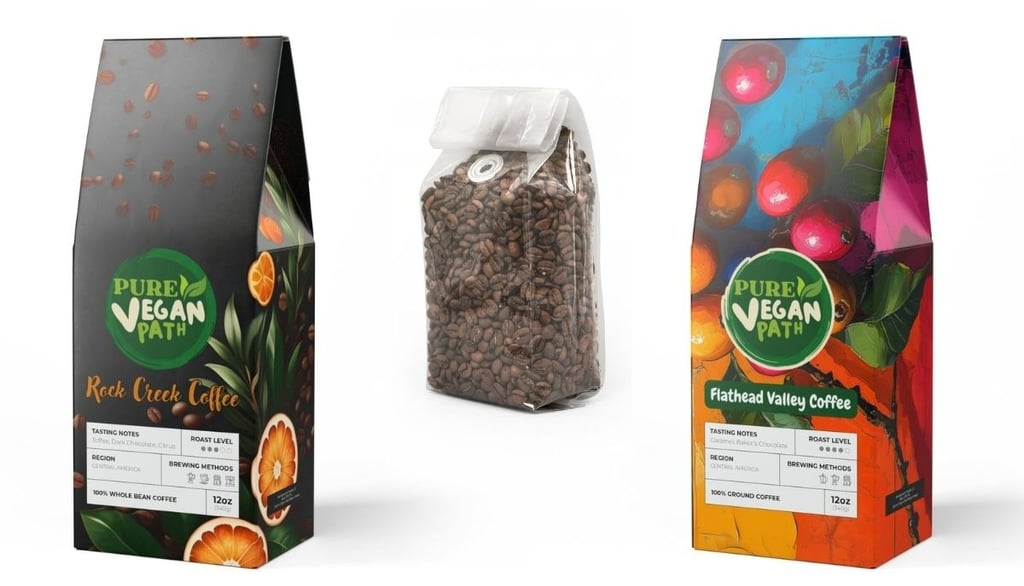Why Coffee Is a Healthy Choice: History, Impact, and Benefits
Discover why coffee is a healthy choice. This comprehensive guide explores its history, health benefits, types, consumption tips, and global trends.
12/16/20243 min read


Coffee has been a staple beverage across cultures for centuries, celebrated for its rich flavor, invigorating aroma, and numerous health benefits. In this comprehensive article, we delve into coffee's fascinating history, global cultural impact, and scientifically supported role in health and wellness.
The Origins of Coffee: A Historical Perspective
Coffee's journey began in Ethiopia, where legend credits a goat herder, Kaldi, with discovering the energizing effects of coffee beans after observing his goats' lively behavior. By the 15th century, coffee cultivation and trade had spread to Arabia, where it became a central aspect of culture, particularly in coffee houses known as qahveh khaneh. These spaces became hubs for intellectual discussion and social interaction.
In the 17th century, coffee reached Europe, becoming popular across the continent. By the 18th century, coffee plantations emerged in the New World, and its production became a global enterprise, spearheaded by regions such as South America and Asia.
How Coffee Became a Global Trend
Coffee's rise to prominence was fueled by its role in fostering social connectivity and intellectual exchange. Today, coffee is not just a beverage but a cultural phenomenon, with billions of cups consumed daily worldwide. Major coffee chains, such as Starbucks, have further popularized its consumption, making it a trendy and accessible drink.
Top Coffee-Producing Countries
Several key producers dominate the global coffee industry:
Brazil: Leading with approximately 40% of the world’s coffee production, Brazil is renowned for its high-quality Arabica beans.
Vietnam: A significant exporter of Robusta beans, Vietnam is the second-largest producer globally.
Colombia: Famous for its smooth and aromatic Arabica coffee, Colombia ranks third. Other major producers include Indonesia, Ethiopia, and Honduras, each contributing unique flavors to the global market.
Shop: Flathead Valley Coffee Blend - Medium-Dark Roast with Rich Chocolate & Caramel Notes


Countries with the Highest Coffee Consumption
Nordic countries top the list of coffee consumption per capita, with Finland leading at over 12 kilograms per person annually. The Netherlands, Sweden, and Norway follow closely, reflecting a cultural preference for high-quality, freshly brewed coffee.
How Many Types of Coffee Are There?
Coffee is available in a variety of forms, ranging from simple black coffee to elaborate espresso-based drinks. The main types include:
Espresso: The base for many coffee drinks, made by forcing hot water through finely ground coffee.
Latte: Espresso with steamed milk and a touch of foam.
Americano: Diluted espresso, offering a milder taste.
Cappuccino: Equal parts espresso, steamed milk, and milk foam. Specialty options, such as cold brew and nitro coffee, have gained popularity in recent years.
Shop: Rock Creek Coffee Blend - Medium Roast with Notes of Toffee, Chocolate & Citrus


The Healthiest Type of Coffee
Filtered coffee, made using methods like drip brewing or an Aeropress, is often considered the healthiest due to its reduced diterpene content—compounds that can negatively impact cholesterol levels. Additionally, light or medium-roast Arabica beans are rich in antioxidants, making them a heart-healthy choice.
The Health Benefits of Coffee
Extensive research highlights coffee's positive effects on health:
Longevity: Regular coffee consumption is associated with reduced mortality risk.
Chronic Disease Prevention: Studies show lower risks of Type 2 diabetes, liver diseases, and some types of cancer among coffee drinkers.
Mental Health: Moderate coffee consumption may enhance cognitive function and lower the risk of depression.
Read more: Study Reveals Dark Chocolate's Role in Reducing Type 2 Diabetes Risk
How Much Coffee Should We Consume Daily?
The FDA recommends a daily limit of 400 milligrams of caffeine, equivalent to about 4 cups of brewed coffee. Exceeding this limit may lead to side effects like jitteriness, insomnia, or increased heart rate.
The Best Way to Prepare Coffee
For maximum health benefits, brew coffee using a filter to minimize diterpene levels. Avoid excessive sugar, syrups, and creamers. Opt for organic, pesticide-free coffee to ensure quality.
Conclusions
Coffee is more than just a beverage; it is a cultural icon and a scientifically supported contributor to health and well-being. When consumed in moderation, coffee can enhance longevity, prevent chronic diseases, and boost mental acuity. By choosing the right preparation methods and types, coffee can remain a beneficial part of our daily routines.
Pure Vegan Path
Explore plant-based living and delicious recipes.
Contact
Newsletter
info@pureveganpath.com
123-456-7890
© 2024. All rights reserved.
